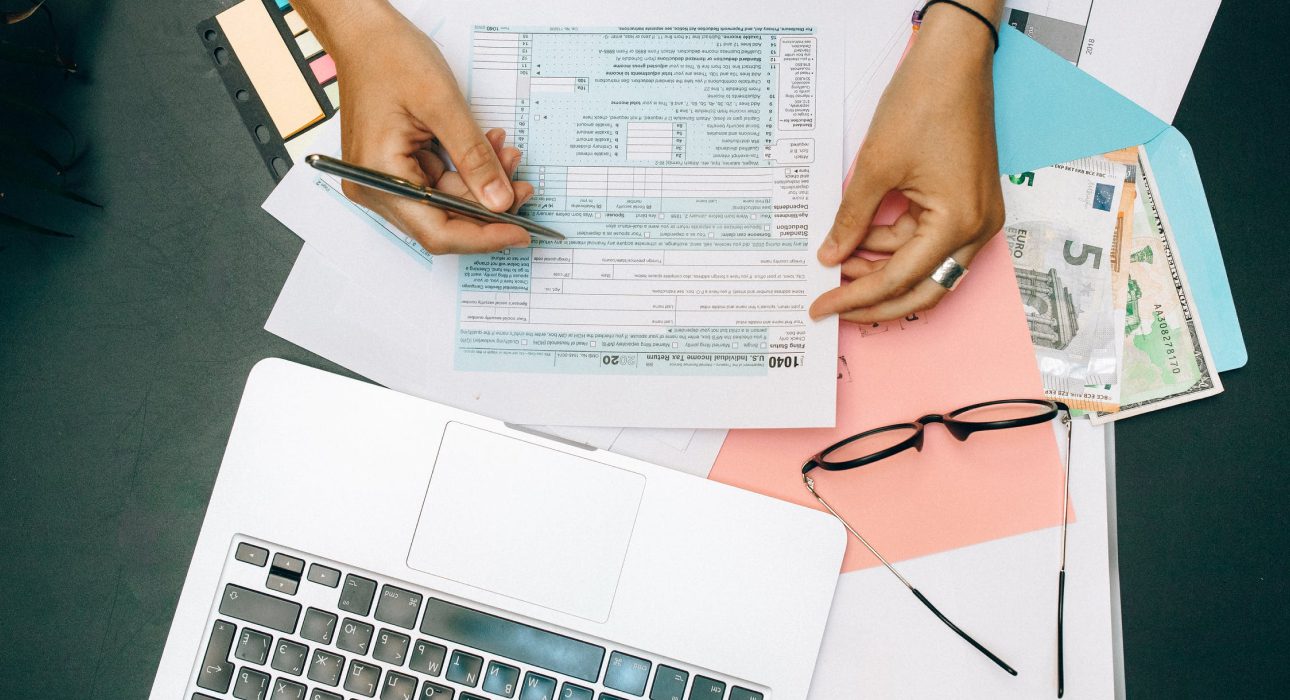
Get the Best Results with Richr: The Top Discount Real Estate Broker in Florida
Are you looking to buy or sell a property, but…
February 2, 2023
Learn how this often overlooked real estate investment strategy can provide you with less risk and stable returns.
Table of Contents:
How do you make money with tax deeds?
Are tax deeds a good investment?
What is the difference between a tax lien and a tax deed?
What are the risks of tax lien investing?
What is the difference between tax deeds and foreclosure?
Which states have the shortest redemption period?
When it comes to real estate investing there are tons of lucrative opportunities available. One of the less known opportunities for real estate investors is Tax deed investing. Tax deed investing and its close counterpart, tax lien investing are often-overlooked investment strategies but have been recently increasing in popularity due to their less volatile nature and more stable returns.
It’s time to buy smarter. Richr gives you cash back helping you buy the home of your dreams.
A tax deed is a document that grants legal ownership of a property to the government when the original owner defaults on their property taxes. A tax deed investor can then bid on the tax deed and profit by collecting interest and fees. Tax deed holders can also choose to foreclose on the property and sell it for a profit. Apart from tax deeds, another type of tax sale includes tax lien sales.
A tax deed investor is someone who buys a title to real estate from a local government auction that has been sold due to nonpayment of taxes. The goal of a tax deed investor is to profit from the payback of their delinquent taxes or cash out on the property which they’ve now obtained for a fraction of market value if the homeowner fails to pay.
Tax deed investing is becoming a more popular investment strategy. When you obtain a tax deed, you are purchasing the title of real estate from the government, which obtained it from a property owner due to nonpayment of taxes. It can be a lucrative investment strategy as it allows you to purchase properties at a fraction of the usual price. This strategy is often utilized by those who fix and flip houses, own home rentals, want to earn a steeper return on investment. Tax deed investing has a high potential to earn, but you should also understand the risks of buying tax deed properties.
Tax deed investors usually buy tax deeds at real estate auctions. In order to find tax deed sales, local governments usually post lists of foreclosed properties prior to the auction. Investors can then obtain these lists, research the properties and decide where to submit bids. Many types of real estate can be found and purchased at tax deed auctions such as residential, commercial, industrial, and even land.
Tax deed auctions are managed by local-level governments and comply with state, city, and county regulations and laws. Only some states allow tax deed sales. Others only allow tax lien sales. Some operate a hybrid system with both types of investment approaches.
Tax deed auctions can often be held online but can also be live and require bidders to be present. Auctioneers will generally set a minimum bid for each tax deed that covers the total of unpaid taxes with penalties, but minimum bids can also be a percentage of the property’s value.
The funds from winning bids at tax auctions are used to pay off delinquent property tax. Winning bidders are required to pay a down payment at the time of winning the auction, Then must pay the rest in cash, usually within 24 hours, depending on the jurisdiction.
Tax deed investing can certainly be lucrative and an excellent investment to add to your portfolio, as long as you know how to find tax-delinquent properties. Like any other investment, the key is to know as much as you can about the property, the neighborhood, and the town in general. You never want to get stuck with a property that you don’t see any upside in.
Like a tax deed, a tax lien can be purchased on a property when an owner fails to pay their taxes. Unlike a tax deed, however, a tax lien does not provide automatic property ownership but rather ownership of the outstanding taxes.
After the tax lien is placed on the property, the owner has a period to pay back the taxes plus any fees and interest. The length of this period, known as the “redemption period,” varies and depends on the jurisdiction. Once the tax lien period expires, if the owner hasn’t paid back the taxes, the government can then sell the tax deed of the property at an auction, creating a lucrative investment opportunity.
Tax lien investing is growing in popularity, and tax liens are common in the United States. In fact, according to the Department of Revenue, there was about $13.5 billion in unpaid property taxes in 2019.
Tax lien investing means buying the delinquent taxes on property and then earning profits when the owner of the property pays back the taxes with interest or from selling the property if they fail to pay. Tax liens give the tax lien holder the right to take the property if the original owner fails to pay off the delinquent tax, plus interest and fees within the redemption period, which is typically 120 days. In most cases, the owner has already had months, or even sometimes years, to pay the taxes before the bidding process, which means an extra 120 days won’t usually impact their ability to pay.
The most common way of buying tax lien certificates is at a government auction. Tax liens are generally issued by local governments and then are sold off to bidding investors either online or in person. In some cases, tax liens can be purchased directly with the local government after the auction process. Selling tax liens allows the city to immediately earn back money lost in delinquent property taxes
Tax lien and deed investing are similar but have their differences. As previously mentioned, a tax deed provides immediate property ownership. When a government has a tax deed on a property, they have the right to sell the property to collect delinquent taxes. After the delinquent taxes are paid, the property is transferred to the new owner who purchased the deed.
A tax lien, on the other hand, provides the lien holder to collect delinquent taxes from a property owner when a property owner has failed to pay their tax debt.
Another key difference has to do with which properties are involved. A tax deed involves real estate only, while a tax lien can involve any type of personal property.
Key Differences:
Tax lien and deed investing can both be lucrative forms of investment but can also be risky for novice investors. One major risk involved with tax lien investing is the possibility of other liens on the property. New tax liens do not erase old liens, so tax liens investors are required to purchase past liens on the property as well. This can add up and require much more upfront cash if the property has many subsequent liens.
Tax lien investors may find that tax lien properties have often been neglected. When a homeowner cannot afford their taxes, they are unlikely to be able to afford the upkeep of owning a home. Distressed properties are something to keep in mind when purchasing tax liens, as high restoration costs may create a less desirable investment.
One other minor disadvantage is the amount of competition you could face from banks, money managers, and other investors. Because of this, it’s important to understand the area and to aim for lower-cost tax liens that are less desirable for deep-pocketed investors.
Tax Lien Investing Risks:
Tax deed states are those states that allow the public to sell and invest in tax deeds.
According to Tax Title Services, here is a list of all the states that allow tax deed investing: Alaska, Arkansas, California, Connecticut, Delaware, Florida, Hawaii, Idaho, Kansas, Maine, Michigan, Missouri, Nevada, New Hampshire, New Mexico, New York, North Carolina, North Dakota, Ohio, Oklahoma, Oregon, Pennsylvania, Rhode Island, South Dakota, Tennessee, Texas, Utah, Virginia, Washington, Wisconsin
The biggest difference between a tax deed sale and the foreclosure sale mainly has to do with due diligence by the buyer. A tax deed takes priority. Unlike with foreclosures, code enforcement liens and violations usually stay with the property and must be resolved by the tax deed buyer. The buyer is also responsible for homeowner or condominium association fees after the tax deed is issued by the Clerk of Court. Tax Deed Sales typically have a minimum bid at least equal to the amount of delinquent taxes but still sell for a fraction of the value of the property price.
Mortgage Foreclosure Sales do not have a minimum bid. The foreclosure judgment holder can bid up to the amount of the judgment without having to pay that total amount to the Clerk of Court if they win the bid by being the highest bidder.
Some states allow foreclosed homeowners a redemption period to buy back or “redeem” their property after a foreclosure. Depending on state law, the owner will either have to reimburse the purchaser for the amount paid at the sale or repay the total mortgage debt, plus interest and expenses.
States that allow post-sale redemption:
The redemption period in Maryland counties is one of the shortest – only six months. Maryland tax sales take place in May and June each year, and a few of them are online.
For those seeking alternative real estate investment opportunities, buying tax deeds can often be a lucrative form of investment, but it’s not for everyone. Tax deed investing requires up-front capital, a substantial amount of knowledge to be successful. There are risks that go along with tax deed investing, but the returns can be rewarding depending on the property at hand. Before you consider exploring and trying tax deed investing, be sure to understand your market area, come up with a well-planned investment strategy, and talk to a tax lien or tax deed expert.
If you’re looking to buy or sell a house and would like to discuss your option, Richr can help you!
Our fully licensed Concierge Team is here to answer questions and provide free, objective advice on how to get the best outcome with your sale or purchase.

If you want the Richr team to help you save thousands on your home just book a call.
 Book a call
Book a call